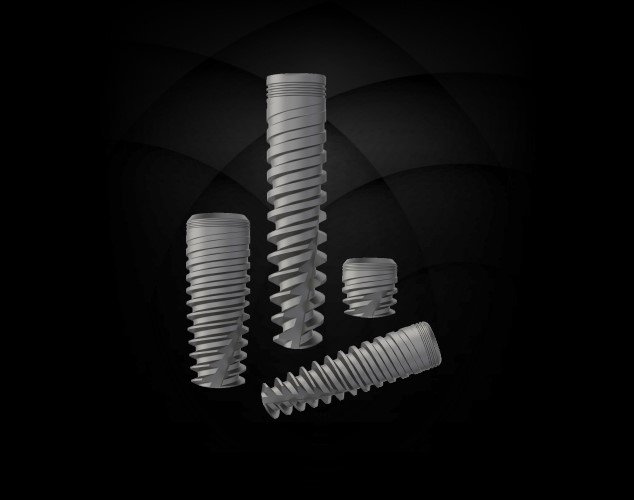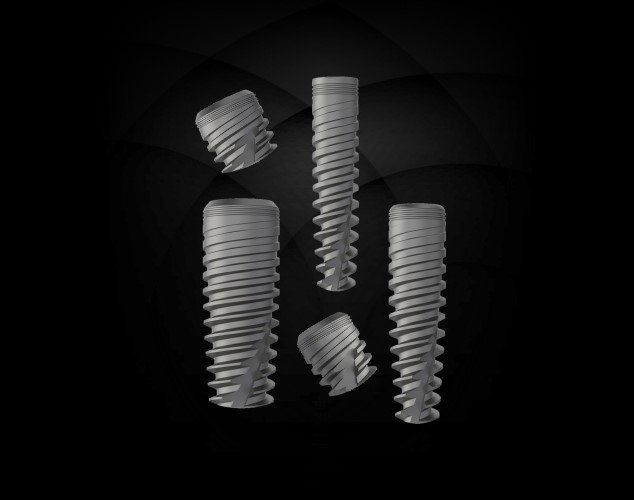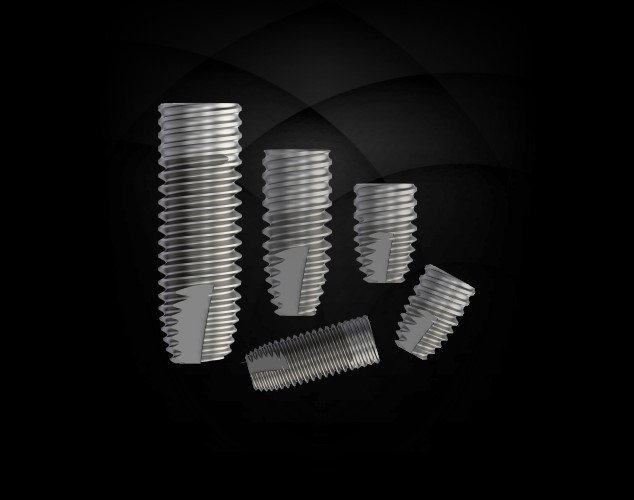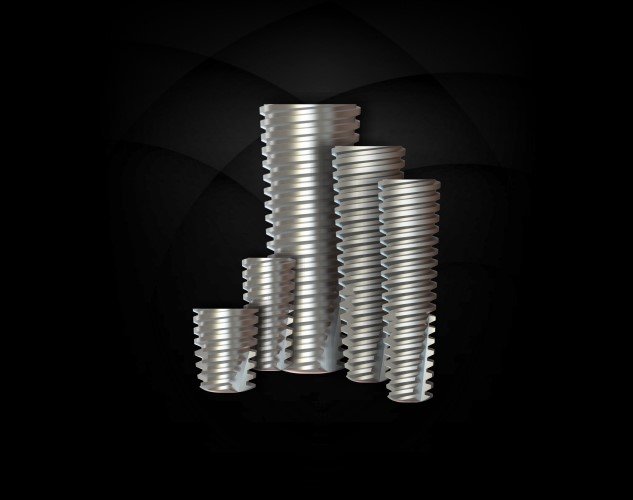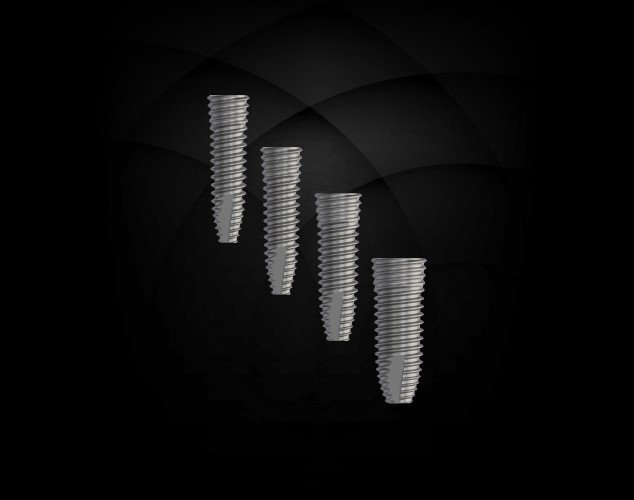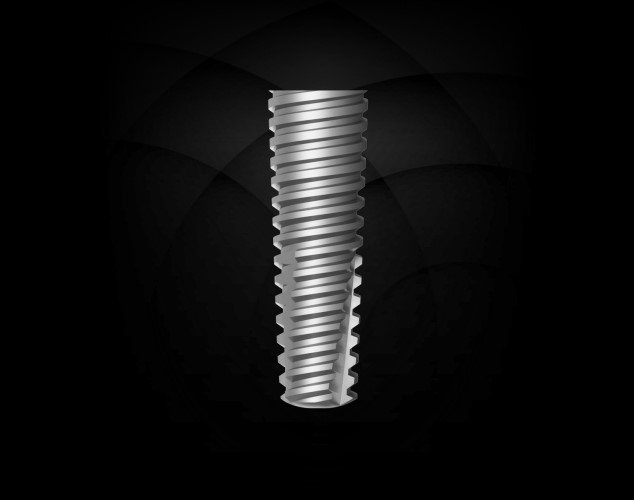– Two Piece Implant –
Two piece dental implants are a popular choice for restoring missing teeth due to their durability, functionality, and aesthetic appeal. These implants consist of two primary components: the abutment and the fixture. The fixture is surgically inserted into the jawbone, where it fuses with the surrounding bone in a process known as osseointegration. Once the fixture is securely anchored, the abutment is attached, providing a platform for the crown or bridge. This two piece implant design offers greater flexibility in customizing the final restoration, allowing for adjustments to the crown or bridge as needed. Additionally, two-piece dental implant can often be used in situations where immediate loading is desired, meaning a temporary restoration can be placed on the implant shortly after the surgical procedure.
Advantages of Two Piece Dental Implants
Two-piece dental implants offer several distinct advantages over other tooth replacement options:
Versatility
The two-piece design allows for greater flexibility in customizing the final restoration. The abutment can be adjusted to accommodate different crown or bridge designs, ensuring a natural-looking and comfortable fit.
Customizability
Two piece implants system provides more options for customizing the appearance of the final restoration, including the shape, size, and color of the crown or bridge. This can be particularly important for patients who want their teeth to blend seamlessly with their natural teeth.
Flexibility
Two piece tooth implants can be used in a wider range of clinical situations, including cases with limited bone volume or challenging anatomical conditions. The separate components allow for more precise placement and adjustment, increasing the chances of successful treatment.
Durability
We use top class medical-grade materials to fabricate these 2-piece dental implants. The fixture is typically made from titanium, which is biocompatible and highly durable. The abutment can be made from various materials, including titanium or zirconia, depending on the specific needs of the patient.
Aesthetics
These dental implants can provide a highly aesthetic result, restoring both the function and appearance of missing teeth. The final restoration can be designed to match the shape, size, and color of the patient’s natural teeth, resulting in a beautiful and confident smile.
Comfort
2-piece dental implant s are generally very comfortable for patients. The abutment can be designed to provide a secure and stable platform for the crown or bridge, reducing the risk of discomfort or irritation.
Long-Term Benefits
Two-piece implants can offer significant long-term benefits, including improved oral health, enhanced chewing function, and improved self-esteem. By restoring missing teeth, implants can help prevent the development of other oral health problems, such as gum disease and tooth decay.
How Often Do Dental Implants Need to Be Replaced?
Dental implants are designed to provide a long-lasting solution. With proper care, they can last for many years or even a lifetime. However, the crowns or bridges attached to the implants may need to be replaced every 10-15 years due to wear and tear. Regular dental check-ups and good oral hygiene practices are crucial for maintaining the health and longevity of your dental implants.
Can Two Implants Support an Upper Denture?
Yes, two implants can support an upper denture. This type of denture is known as an “overdenture.” However, to support a full upper denture, a minimum of 4 to 6 implants are required. The dental implants are surgically placed into the jawbone, and then special attachments are added to them. These attachments connect to the denture, providing stability and support.
Two implants may be enough to support an upper denture, but the specific number may vary depending on factors like the shape and size of your jawbone, the quality of your bone, and your overall dental health. Your dentist will be able to assess your individual needs and recommend the best number of implants for you.
How Long Does It Take to Place 2 Piece Dental Implants?
The surgery for two piece dental implant generally takes 1-3 hours per implant. However, there are several factors on which the duration depends:
- Complexity of the case: Simple cases with healthy bone and gums may take less time than complex cases involving bone grafting or sinus augmentation.
- Number of implants: Placing two implants is generally quicker than placing a larger number.
- Anesthesia: The type of anesthesia used (local or general) can affect the procedure time.
- Dental practice and surgeon experience: A skilled surgeon can often complete the procedure more efficiently.
Above all, important to consult with your dentist for a more accurate estimate based on your specific situation.
FAQs
A two-piece implant is a type of dental implant that consists of two separate components:
Fixture: This is the part that is surgically placed into the jawbone. It typically has a threaded design to secure it firmly in place.
Abutment: This is the connecting piece that attaches the crown or bridge to the fixture. It can be a separate component that is screwed onto the fixture or a part of the crown itself.
Two-piece implants offer versatility and customization, allowing for different types of restorations to be attached. They are commonly used in various dental procedures, including dental implants, bridges, and dentures.
An abutment is a structure that serves as a support for a dental restoration, such as a crown, bridge, or implant. It’s typically a metal post or screw that’s surgically placed into the jawbone.
Here’s how it works:
Implant abutment: This type connects a dental implant to a crown or bridge.
Bridge abutment: This type supports a bridge, which replaces missing teeth.
Abutments provide a stable foundation for restorations, ensuring they stay securely in place and function properly.
Yes, it’s possible to have a tooth extracted and an implant placed on the same day. This procedure, known as immediate implant placement, can be performed in certain cases where the bone quality and quantity are adequate.
However, to confirm whether you are an ideal candidate, it is important to consult an experienced dentist. Factors such as the type of tooth being extracted, the condition of your jawbone, and your overall health will be considered.
Yes, you can get temporary teeth while waiting for implants. These temporary teeth are often referred to as “immediate dentures” or “provisional restorations.” They serve as a cosmetic solution during the healing process after tooth extraction or while your implants are integrating into your jawbone. They can be fixed or removable, depending on your specific situation and the dentist’s recommendation.
Type 2 implant placement is a surgical procedure used to anchor dental implants into the jawbone. In this case, the implant is placed within 1-2 months after tooth extraction. It’s specifically designed for patients who have lost a significant amount of bone mass in the area where the implant is to be placed.
In this procedure, a small piece of bone graft is surgically inserted into the jawbone, providing a foundation for the implant. Once the bone graft has healed and integrated with the jawbone, the implant can then be placed into the newly formed bone. This method is often necessary to ensure a stable and long-lasting dental restoration.
People who should not get dental implants include:
- Those with uncontrolled diabetes.
- Heavy smokers, as smoking can hinder healing.
- Individuals with severe gum disease or periodontal disease.
- People with certain bone disorders or jaw conditions.
- Those undergoing radiation therapy or chemotherapy.
- Individuals with blood clotting disorders or immune system problems.
It’s essential to consult with a dentist to determine if dental implants are suitable for your specific situation.

